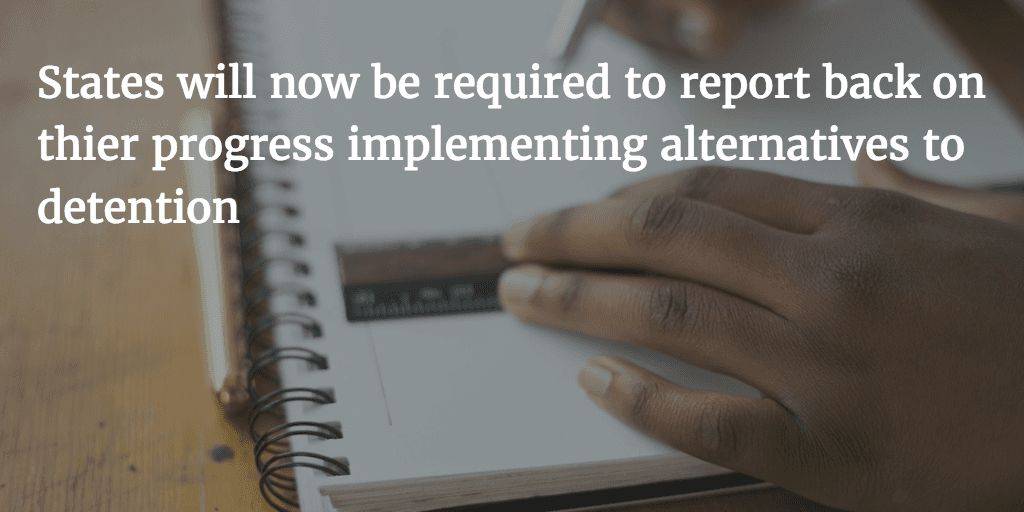Fifteen States across Africa committed to developing and implementing alternatives to detention for migrants, including children, at the 2016 Migration for Southern Africa Dialogue (MIDSA).
The commitment marks significant progress, upgrading from the previous commitment to exploring alternatives to detention (ATD) to manage migration of vulnerable people in Southern Africa.
The States are Members of the Southern African Development Community (SADC), becoming the first sub regional mechanism in Africa to join the growing movement promoting alternatives as a solution to end child detention.
Officials from the governments of Botswana, Angola, Malawi, Democratic Republic of Congo, Mozambique, Lesotho, Madagascar all revealed during MIDSA 2016 that the exploration phase of alternatives to detention has been successful, supporting the upgrade of language from ‘explore’ to the ‘implementation’ stage of their ATD commitments.
The IDC Africa and Middle East Regional Coordinator, Junita Calder, participated in the MIDSA discussions, sharing good practices and commending States for the progress made exploring alternatives to detention in the region.
Some of the alternatives identified include policies and pilot projects being developed by these States. Screening processes to identify unaccompanied children and other vulnerable migrants have been shown to be beneficial to States to prevent unnecessary detention or confinement with criminals.
This commitment by SADC officials means that, in a practical sense, States will be required to report back on progress of alternatives to detention in future MIDSA meetings, which take place annually to bring together senior government officials to discuss and agree upon migration-related issues of regional concern.
Forthcoming work by SADC governments include policies to strengthen child rights and labour laws to protect migrants, as well as training border control officials to conduct initial screenings and assessments.
Representatives from the International Organisation for Migration and UNHCR Africa pointed out that the success of any of the ATD pilot projects in the region often depends on effective regional cooperation among SADC governments, by sharing best practices. “We need to work together to develop specific responses to mixed migration which ensures protection for vulnerable people. Effective screening and assessment processes are necessary in migration management,” said Veronica Irima Modey-Ebi, UNHCR Deputy Regional Representative for Southern Africa.
“If we can acknowledge and manage migration in a coherent manner, we can reap the benefits,” said Peter Mudungwe, Migration Advisor, African Union Commission.
At the 2016 MIDSA, Ben Aliwa, representative of Save the Children East and Southern Africa Child Migration Program, pointed out that adopting a case management approach was an effective alternative to detention for migrant youth and children.
During discussions, Calder highlighted the importance of continuous monitoring and review processes in developing and implementing alternatives to detention. “Monitoring border posts and detention centres improves data collection and helps make effective referrals. This ensures protection for refugees and other migrants.”
Mabuse Pule, Botswana’s Director of Immigration and Citizenship, pointed out that it was important to allow social workers to be actively involved in border management, so that they can educate law enforcement officials about rights of vulnerable migrants like children and avoid placing them in harmful detention.
The IDC commends this development and looks forward to the next stage of this significant commitment to alternatives.
See the outcomes document here: Final MIDSA 2016 Conclusions and Recommendations
